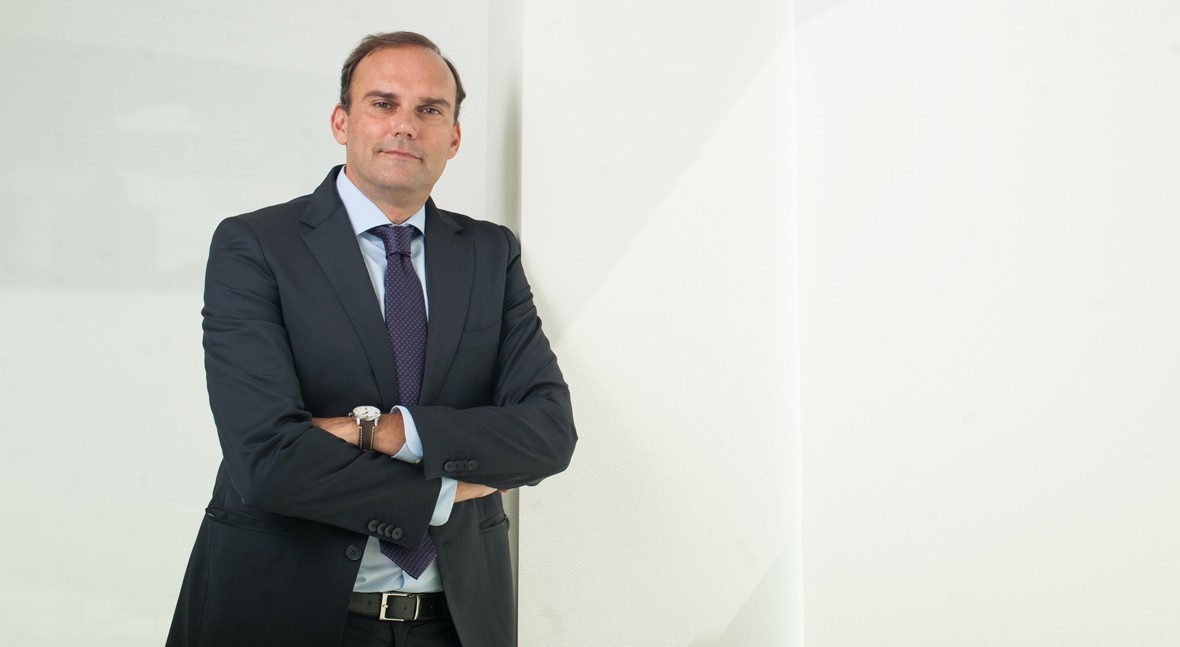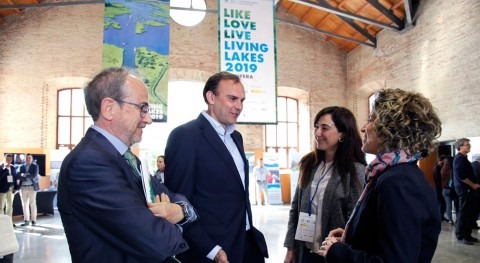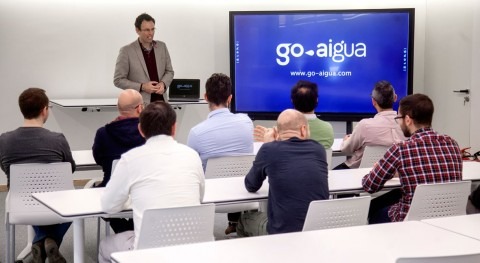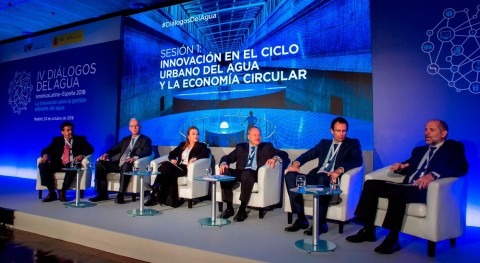Vicente Fajardo has moved up the ranks of a company that accumulates almost 130 years of expertise in water management. We are, without a doubt, with the person of choice to learn first-hand about the metamorphosis that Global Omnium has experienced in the past decade. As a result of this evolution, not only has the company become established as a leader in digital transformation in the water sector, but also as a diversified technology company that clearly stands out as one of the winners of the Industrial Revolution 4.0.
Question - Mr Fajardo, firstly, we would like to know about your career path, and how it led to your current position.
Answer - Since I graduated from Pharmacy, and from various fields, my entire career path has revolved around water and this company.
Given my educational background, I started my career at Global Omnium as an intern in the company’s lab. Afterwards, I moved on to different positions with greater responsibility in the area of waste water, until I became Director General in 2015.
This pathway and career development through the various areas of the company has given me a real and global outlook of the organisation and the people that are part of it. It helps me deal with our current challenges and the decisions I make from my current position, fully knowing the company's needs, and, specially, ensuring the sustainability of this historical business into the future.
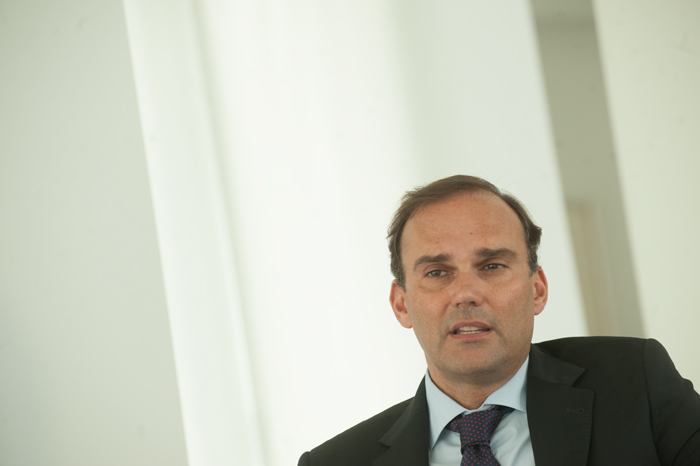
Q - What is the current position of Global Omnium in Spain?
A - Currently our company is present in more than 400 cities across Spain, managing different services related to the water cycle. That allows us to work daily towards improving the quality of life of more than seven million people.
Something this company has always been known for, throughout its 130 years in business, is how it strives to constantly improve the services provided to clients. This driving force has led us to currently being responsible for managing 700,000 smart meters, as leaders in this technology. Striving to increase the quality of services, 10 years ago, when digital transformation was not as popular as it is today, we put together a working group to introduce sensors and monitor the entire company in real time.
On the other hand, the group is diversifying its business; as a result of our work on water resource management and the efficiency of productive processes we are reaching across disciplines and towards Industry 4.0.
Q - And what about the international market?
A - Global Omnium is present in five international markets (Angola, Colombia, Ecuador, Qatar and Venezuela). This was made possible thanks to the positioning of our company with the development of technological solutions in the water sector: namely, Valencia becoming the first large European capital to have completed the installation of smart meters; daily management of more than 15 million data; the creation of the first technology incubator specialised in the water business...
Having an extended and extensive experience in the development of technological innovation specialised in the sector is a differentiating element that means we can offer 'real solutions' anywhere in the world. Our international strategy is based on contributing value to our clients by exporting knowledge and experience.
Q - Global Omnium has positioned itself as a leader in technological innovation for managing water resources. What are the keys to this success?
A - As I mentioned earlier, we find the key in the characteristics of the company, created in 1890 to solve a specific water supply problem in the city of Valencia. Since then and up to now, we have done our best to ensure the satisfaction of our stakeholders with the technology solutions that we have developed, which provide information to them in real time.
A few years ago, when we started this constant and endless journey of digitalisation and technological innovation, and this is a key point, we relied upon the expertise acquired by generations of experts in water management. We added technology to that, and, above all, the enthusiasm of our entire organisation to conceive a new way of optimising water resources, so scarce in our country.
Years later, I must say that our current position would not be possible without the intrapreneurship of all the employees in this company, with a clear drive to innovate for the sake of citizens, and without the strong support of our shareholders that, strategically, thought we could become the technology leaders we are today.
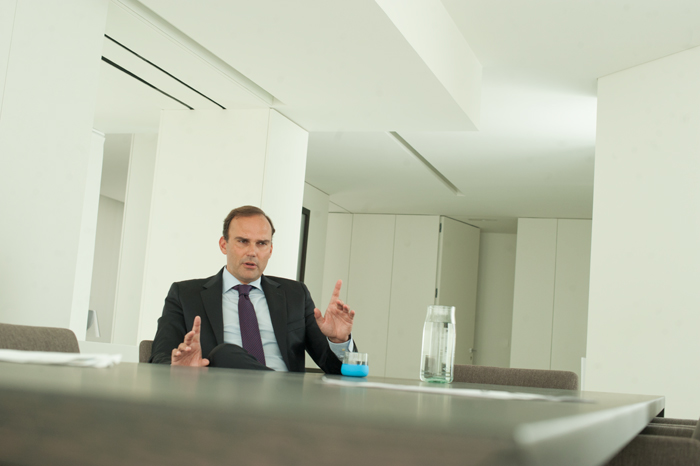
Q - The water sector is able to collect a large amount of data that can help understand what goes on in cities. How can this knowledge be applied in such a way that citizens can enjoy the advantages of a smart system?
A - In our case, this is already a reality. Thanks to Big Data, we have created specific services to, for example, improve care services for elderly people living alone, or to warn citizens, in a proactive manner, about potential leakages in their homes, therefore avoiding excessive and costly water consumption.
These are just some examples of what we can do with appropriate information management, and which we already offer to our clients. The essential thing is that organisations internalise and adapt to what technology allows us to do, which, on the other hand, citizens are demanding from us.
The sustainability of different agents in the sector, today and tomorrow, will depend on the self-commitment to increase their efficiency in order to improve service ratios, and, specially, develop solutions that are adapted and created jointly with citizens, solutions that may contribute to a better quality of life.
In this regard, I consider Smart Cities as smart ecosystems which are encouraging the creation and development of multiple services based on data management, with the purpose of optimising natural resources in a holistic manner.
Q - How is digitalisation transforming the business model of water sector companies? What are the risks for those organisations that are not able to adapt?
A - The digital transformation under way in the sector is making service providers like us increase the efficiency of process management, which, logically, results in an outstanding service provided to citizens.
On the other hand, thanks to data management, it is possible to offer our stakeholders comprehensive information about the service hired, as well different channels to transmit this information, which facilitate interacting with them. Actually, this new paradigm gives rise to a more 'democratic' management of resources, where we all are active and key players in a collective project to achieve true sustainable development.
Digitalisation is not an option, it is a reality for all those organisations that intend to ensure their viability in the future. Currently, regardless of the type of client (public authority, citizen, private company, association...), their requirements are high, and the only way to satisfy them is through this disruption, which we started more than ten years ago, and which helps us stay close to the needs of our clients thanks to real time information.
Q - Big Data, Internet of Things, Augmented Reality, drones...Which technology do you think will be the most disruptive in our sector?
A - Based on our experience with implementing these in our company, I think an appropriate and balanced combination of them all. Data and data management are essential in the disruptive path we are in, so the investment in Big Data is noteworthy. However, for this to be possible, data have to be received, and for that, we have included in our organisation experts in the Internet of Things (IoT), in drones...Then, you have to use them to create a service that increases the quality of our service, and here, Augmented Reality or the Digital Twins we have developed can be very useful.
Actually, in this chain of innovation, where technology is the driver and the constant objective is adding value and knowledge to improve our clients' experience, the terms beginning and end are fuzzy.
I think the major disruption should be constant and informed by a strategic perspective that combines technologies, beyond a single solution. If this clear positioning does not take place, the possibilities that the disruption opens up will not improve substantially how organisations such as ours meet de demands of society.
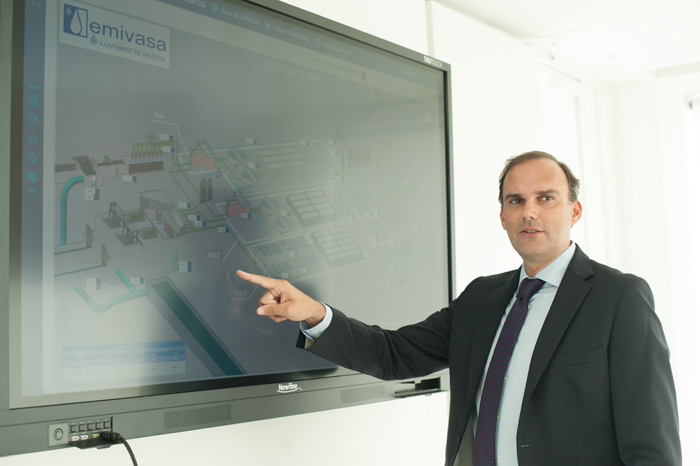
Q - Digitalisation opens up many opportunities, but there are also risks that have to be managed. Cybersecurity has become one if the main concerns of organisations. Is the water sector prepared for these threats?
A - No, no sector is prepared. You cannot be too emphatic concerning security, there are hundreds of threats. But we do make every effort to detect and thwart them.
In our case, we are aware of the risks inherent to the digital transformation the company has experienced, risks that any company, public authority or citizen is exposed to nowadays. Therefore, the same as we decided to work on technology innovation to contribute to a better quality of life for people, we work and invest to safeguard the services we provide them.
Our endeavours to protect and safeguard citizens' access to water, under any circumstances, are an essential part of our work, and part of the risk management system we obtained certification for in 2013, being the first Spanish company to obtain it.
Our responsibility is to anticipate and integrate in our management any and all aspects that may interfere with the normal course of business, and how they may affect citizens; obviously minimising that risk is one of the tasks that any company in the sector should manage proactively.
Q - The digital transformation will have a huge impact on the labour force. What will be the direct consequences for companies that manage water services?
A - Water management companies will no longer be water resources companies, and instead will become software companies with water resource managers. Whomever does not get that will be driven out of business in a few years, because they will no longer provide value to society and to citizens, who will demand efficient solutions that only this 'revolution' can provide.
Q - In 2017 you started up the Sic Parvis Magna accelerator, in order to foster entrepreneurship, innovation, and job creation in the water sector. What is your analysis of this first year of activity?
A - This is a remarkable time for innovation and talent in Spain; it is a time to be here. It has been a success. With Sic Parvis Magna we have been able to glance at the technological rupture movement and combine it with our expertise, so this has strengthened the Group.
The launch of Sic Parvis Magna was a strategic initiative in order to foster entrepreneurship, innovation, and job creation in the water and environment sector.
The strategy of the accelerator comprises intrapreneurship within the company itself, as well as its own startup incubator, that aims to accelerate the growth of technological and specialised companies in order to foster the company's internal talent, and the creation of an entrepreneurial ecosystem around Global Omnium.
At Sic Parvis Magna we provide startups an ecosystem with all the spaces and services necessary for their technological and business development. This includes financial support, a place to work, guidance by expert mentors, ad hoc training activities and events such as conferences or workshops.
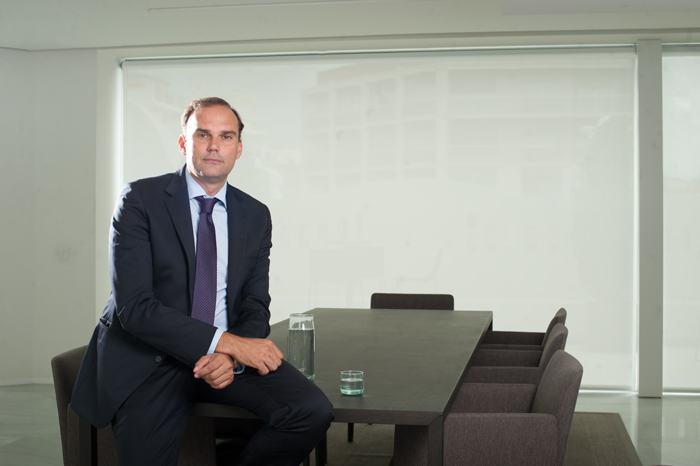
Q - In 2017 you bought 80% of the technological company Ensai Solutions and created Core, Digital Industry. Did this operation seek to position global Omnium in the scope of Industry 4.0, beyond the water sector?
A - Water is one business sector, and we have the technology and the standards to manage it. With this operation, we have introduced ourselves in industries such as the food, ceramics, or automotive industries, with the technological standards of the water sector. Yes, actually, it is Industry 4.0.
Our experience in the water sector allowed us to develop technological innovations which have contributed to optimizing the productive processes in the different services of the integrated water cycle that we manage, for the benefit of our clients, and particularly, of citizens.
In addition to acquiring this practical expertise, we are sure that it is possible to apply these same efficiency criteria to other domains of society. And this is how, as part of our strategic plan, we get into Industry 4.0, which today is the only possible path for those organizations that want to position themselves well into the future.
Q - To end the interview, Mr Fajardo, let us imagine we are in that disruptive future that is waiting for us. How would you like Global Omnium to be in 2030?
A - We are soon going to standardise our solutions so that the global water market can benefit from them. We started 10 years ago and that gives us a head start. We have technological solutions used in contracts dealing with energy efficiency in water abstraction; hydraulic efficiency; automation of waste water treatment plants and drinking water treatment plants; fast implementing solutions for the management of the whole water business cycle: reading, invoicing and collection; and Smart City platforms for water. We have almost 130 years of expertise managing the processes of a water company. Where do we see ourselves? We see ourselves leading technological solutions and process management in the water sector anywhere in the world.
The future is changing and we satisfy innovation needs at a very fast pace. However, it is promising to think that in 2030, thanks to the service philosophy of the more than 2400 people that are part of the group, we will continue to help people in several continents have a better life, ultimately making this world a little more sustainable.
I believe in people who, regardless of innovations and changing technologies, continue to have a commitment to service, and in this regard I feel fortunate to be part of this company.


